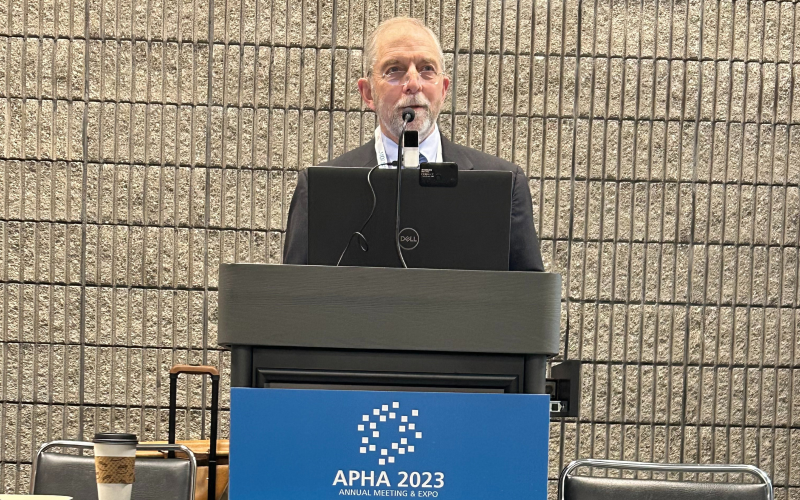UAlbany Faculty Trailblazes New Road Map for Addressing Brain Health in Communities

ALBANY, N.Y. (Feb. 15, 2024)— The Healthy Brain Initiative is a program spearheaded by the CDC and the Alzheimer’s Association to advance understanding and inclusion of addressing cognitive decline as a central part of public health practice. As a part of the Healthy Brain Initiative’s leadership team, UAlbany’s David Hoffman recently updated a framework called the Healthy Brain Initiative Road Map, a guidebook for state and local public health practitioners to address brain health and support caregivers in their communities.
Today, 6.5 million Americans suffer from Alzheimer’s disease. If current trends continue, that number is expected to balloon to 14 million by 2060. That would translate to roughly 1 in 9 adults suffering from this incurable and disabling disease. Furthermore, the risk of developing Alzheimer’s is exacerbated by persistent racial and ethnic health disparities, meaning that in some communities the proportion of adults affected will be significantly higher.
“Our Healthy Brain Initiative leadership team led the process of gathering input and driving the development of a new Road Map,” Hoffman explains. “This new version has more emphasis on risk reduction, which is a direct result of those of us from the public health field who have been involved and pushed the research agenda focused on reducing risk across the lifespan.”
The newest version of the Road Map, which maps out an agenda through 2027, also emphasizes the importance of community partnerships and health equity. It contains resources to help empower public health professionals to implement health promotion programs in the communities they serve, as well as tools for collecting data and evaluating the results of those programs.
Hoffman explains that although there is currently no cure for Alzheimer’s and other forms of dementia, public health interventions can help improve the lives of those suffering from the disease as well as their caregivers.
In a recent publication, Hoffman explains that “other key factors calling out for action include that a large percentage of people with dementias and their caregivers are unaware of the diagnosis; about 25 percent of hospitalizations in this population were preventable; almost half these people talked to a healthcare provider about memory concerns; having another chronic condition is a complication; and 1 in 3 caregivers report worsening health.”
Research has also revealed strategies for reducing risk of developing Alzheimer’s, though only about 40 percent of the total risk factors for the disease have yet been identified. But there are some things you can do to reduce your risk as you age. For example, avoiding hearing loss, engaging in regular physical activity, not smoking, and drinking alcohol only in moderation are all protective against Alzheimer’s. There is also evidence that people with access to a high-quality education early in life who then continue to pursue learning opportunities throughout adulthood are at lower risk of developing the disease.
Nonetheless, Hoffman emphasizes that Alzheimer’s disease must be tackled at the policy level.
“Improving the public school system so that everyone has access to the cognitive benefits of a quality education is one strategy for combatting this disease,” he says. “We also know that breathing in air pollution, poor diet and lack of physical activity can all increase the risk of Alzheimer’s, and therefore efforts to improve indoor and outdoor air quality, better eating habits and regular physical activity like walking daily could also substantially reduce the burden of this disease. A robust population-wide intervention that includes public awareness, public health education, professional education, changes in clinical practice, and changes in public policy are all necessary to enact lasting change.”


